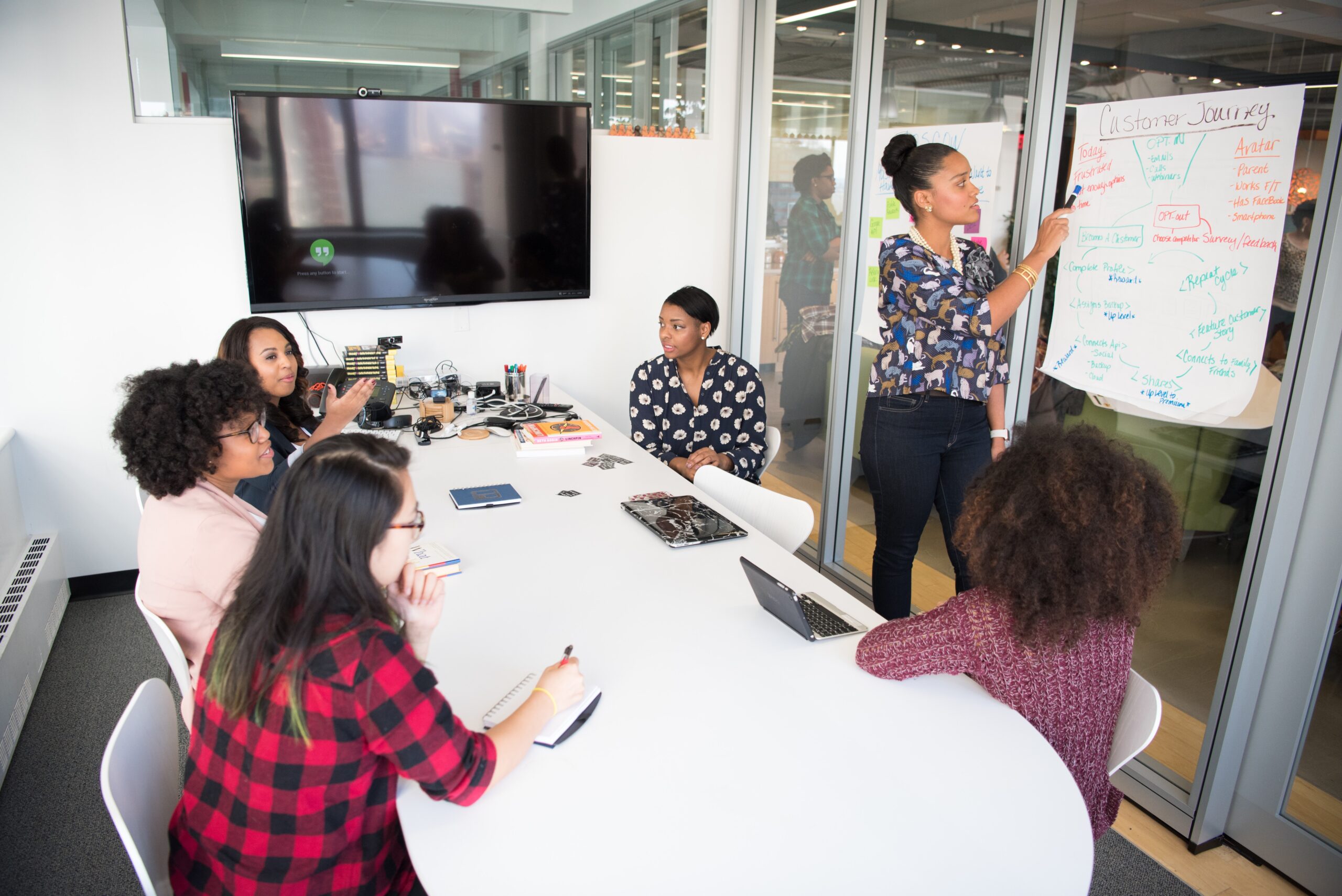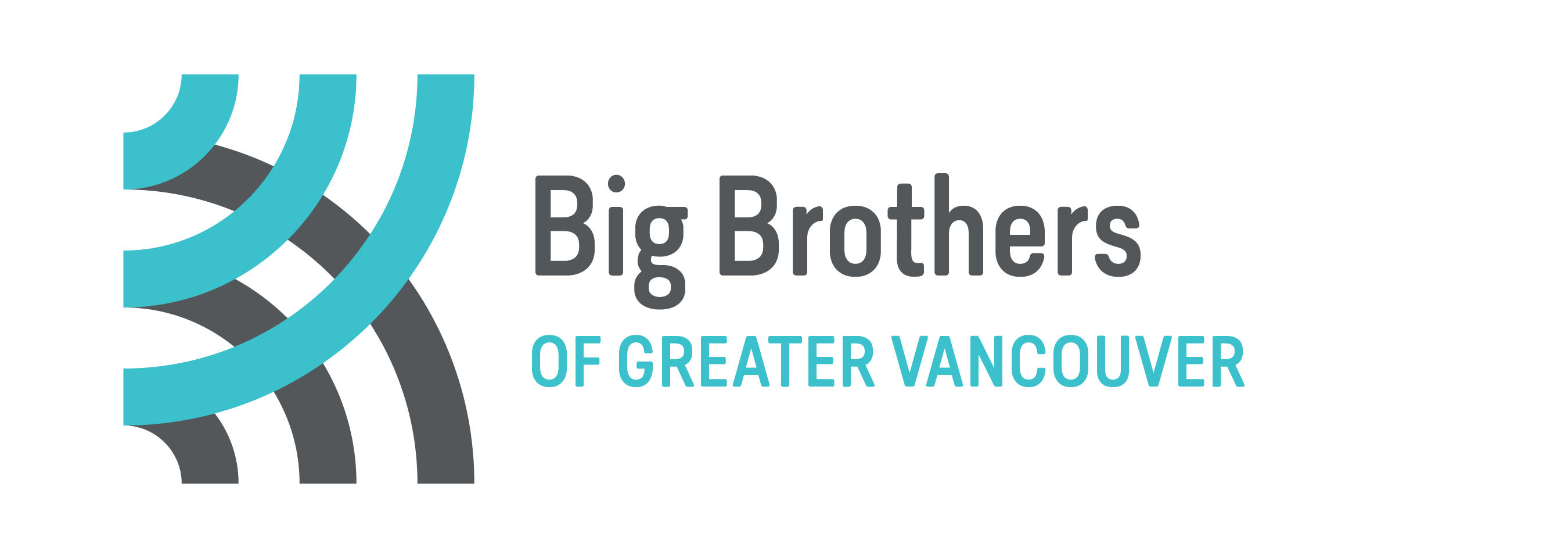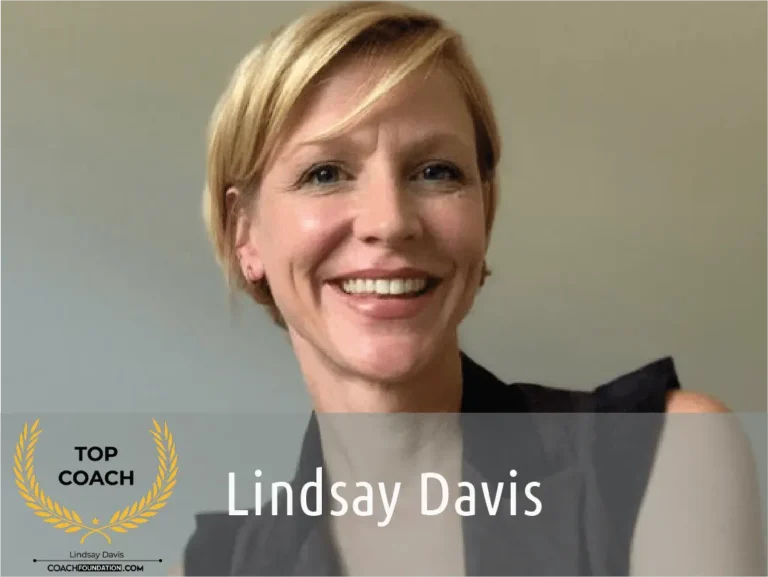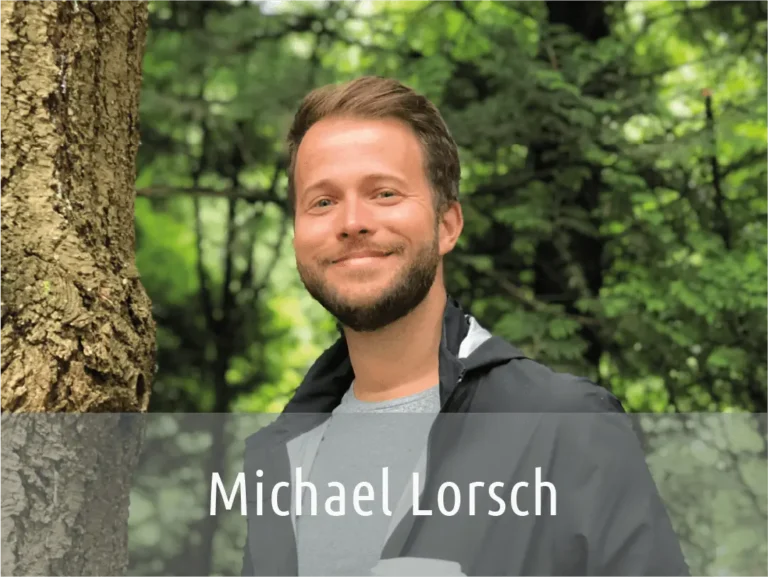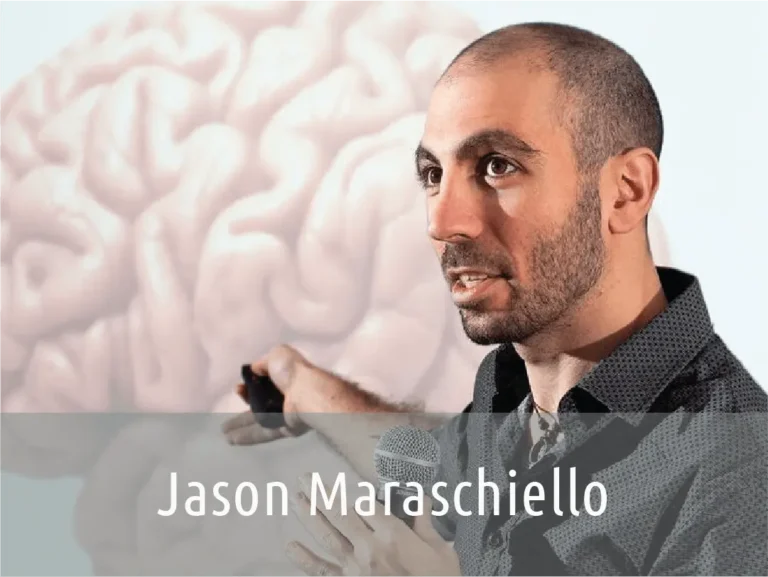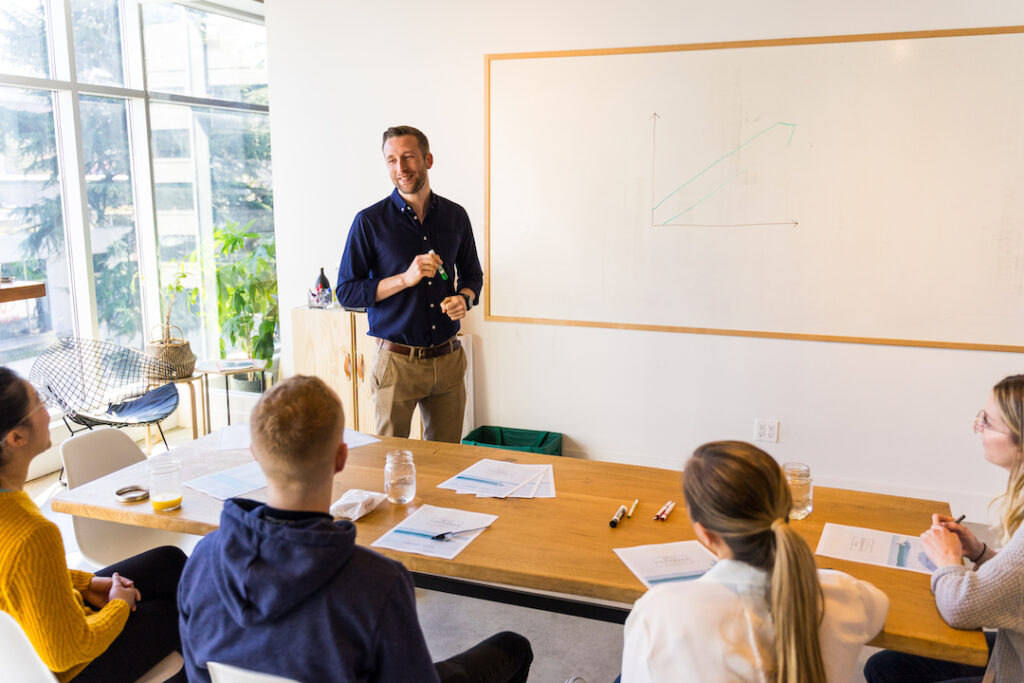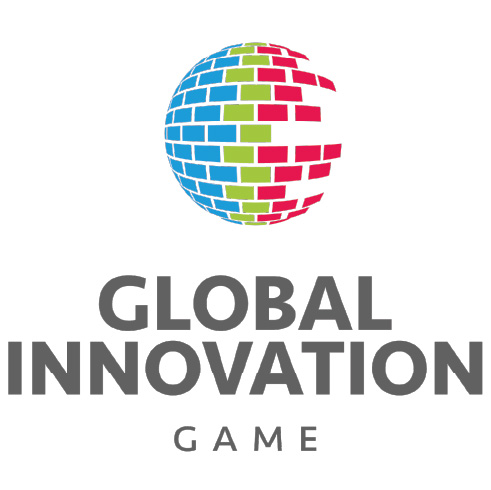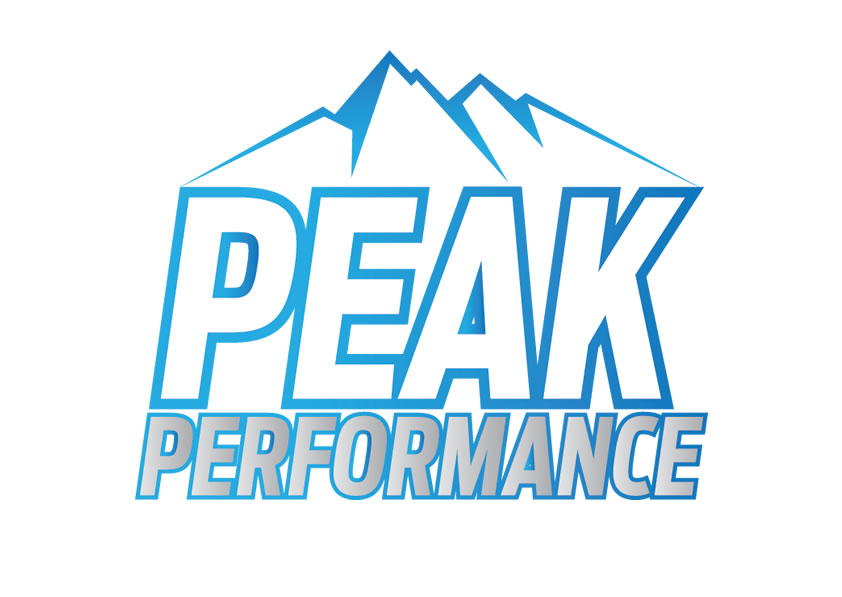“75% of transformation is in the logistics”
Choosing the right professional for any job can be daunting – it’s no secret that quality and cost are often inversely related. But, by delivering exactly what is agreed upon at an appropriate rate, anyone hired to complete a task has the potential to make their client feel confident about their choice – as well as more likely to refer to others. To help you understand how best to conduct yourself when working with organizations of all sizes, we’ve put together this guide below – read on!
To help you make the right decision, here’s what Positive Impact’s clients say about us.
First of all, if you’re not familiar with what a facilitator does, start here.
But if you’re already familiar, here are the 13 definitive skills you’ll find in a good facilitator:
1. You set the stage
Essentially, you’re creating an environment that is conducive to optimal learning, development, and collaboration. There are a few key things to keep in mind when setting the stage:
- Make sure everyone feels safe and respected. This includes ensuring that there is a diversity of perspectives and backgrounds represented in the group.
- Establish ground rules for how the group will work together. These rules should promote respectful dialogue and constructive feedback.
- Create an agenda that is clear and achievable. This will help focus the group’s discussion and ensure that everyone has a chance to contribute.
2. You’re a deep, active listener
This means being present and engaged in the discussion while also paying attention to nonverbal cues. Active listening requires you to:
- Listen for understanding. This means trying to see the issue from the other person’s perspective. Not simply listening to respond.
- Seek clarification. If you’re not sure you understand what someone is saying, ask them to explain further.
- Reflect on what you’ve heard. This helps ensure you’ve understood the other person’s point of view.
- Acknowledge the other person’s thoughts and perspectives. This shows that you’re listening and empathizing with their experience.
3. You’re never caught off guard
This means being able to adapt and keep the discussion flowing. There are a few key things to keep in mind when dealing with new information:
- Don’t be afraid to ask challenging questions. If you’re not sure about something, it’s better to ask for clarification than to make assumptions.
- Be open-minded. Try to see the issue from different perspectives and consider all points of view.
- Be decisive and agile. When presented with new information, decide how it will impact the discussion and move forward.
4. You’re aware of who’s in the room (and who isn’t)
A facilitator needs to be aware of who is in the room to understand the hierarchy structure and what group dynamics are at play. This allows you to manage the discussion, identify potential areas of conflict, and keep the conversation moving forward.
It’s also important for a facilitator to understand group dynamics. This includes things like identifying the decision-makers in the group, understanding how people interact with each other, and being aware of any potential power struggles that could arise.
By understanding these dynamics, you can more effectively facilitate discussions and ensure that everyone feels heard and that decisions are fair and presented transparently.
5. You’re a master at providing guidelines and clear instructions
No matter what the goal of the facilitation is, providing clear and concise guidelines is paramount to the success of the session. Without these, it can be difficult for participants to understand their expectations or to stay on track.
As a facilitator, your job is to make sure that everyone is on the same page from the start. This means being clear about the goals of the facilitation, outlining any community guidelines, and providing any necessary background information.
6. You create an inclusive environment
As a facilitator, you play a critical role in creating an inclusive environment for everyone involved. By ensuring that everyone feels valued and respected, you help create a space where everyone can contribute and thrive.
Here are some tips for creating an inclusive environment:
- Make sure everyone feels welcome. When people feel like they belong, they’re more likely to engage with the group. How? This feels vague
- Encourage open communication. Create an environment where people feel safe speaking up and sharing their ideas.
- Invite different perspectives. Showing respect for others’ opinions, experiences, and perspectives helps create a sense of understanding and community.
7. You can get people excited and engaged
This means being able to tap into what makes the group tick and then using that knowledge to create an environment where they can learn and grow.
First, it’s important to understand what motivates your audience. What are their goals? What do they hope to achieve by attending your session? Once you know this, you can craft your messaging and activities accordingly.
It’s also important to be aware of different learning styles. Some people are visual learners who need to see things to understand them. Others are auditory learners who benefit from hearing information presented in a certain way. Others are kinesthetic learners who need to physically experience something to understand it. By catering to all these different learning styles, you’ll be more likely to engage everyone in your session.
Finally, don’t forget the power of enthusiasm! If you’re passionate about what you’re doing, that will come across in your delivery and help to get others excited about what you’re teaching. When having an excited and engaged audience, they’ll be more likely to learn and retain the information you present.
8. You’re an expert time manager
You know how to manage time, and you’re always respectful of the time that’s agreed upon. That’s why you make a great facilitator! You understand that time is precious, and you know how to use it wisely. You can help others do the same by ensuring that everyone stays on track and remains focused on the task at hand. Keep the meetings productive and efficient, allowing everyone to leave feeling satisfied with the results.
9. Your ability to change with the times is crucial
The world is constantly evolving, and new information is always emerging. If you’re not able to change and adapt your facilitation style, you will quickly become outdated, ineffective, and likely out of work!
Being flexible and adaptable also allows you to better serve your clients. Each client is different, and each situation is unique. By being flexible, you can tailor your facilitation style to best meet the needs of your client.
So, if you want to be an effective facilitator, change and adaptation is crucial. It’s the only way to keep up with the ever-changing world around us. For example, try incorporating team-building activities as part of your facilitation.
To learn more about team-building activities, check out Peak Performance and Global Innovation Game.
10. You break the cycle of unproductive conversations
As a facilitator, it’s important to break the cycle of unproductive conversations. All too often, these types of conversations go in circles, with each person trying to one-up the other. This only leads to frustration, and resentment and can lead to the deterioration of relationships.
Breaking this cycle can be difficult, but it’s essential if you want to create a productive environment. The first step is to identify when a conversation is starting to go off track. If you see people getting impatient or defensive, that’s usually a sign that things are heading in a direction that may need some guidance.
At this point, you may need to step in and direct the conversation. Keep everyone focused on the task at hand and try to bring up new points.
11. You read energy levels and keep everyone going
A facilitator must be able to read and understand the energy levels of everyone in the room. If someone’s energy is low, it’s the facilitator’s job to get them re-engaged. This might mean moving them to a different seat or asking them a question that will get them thinking. It’s all about keeping the energy levels up so that everyone can participate in the discussion.
A facilitator’s tool kit will be filled with energizing activities to implement after lunch or at an energy lull.
12. You curb office politics and the saying, “This is how we’ve always done it”
Here’s why that’s important:
- Office politics can derail productivity and create an environment of distrust.
- “This is how we’ve always done it” is a limiting belief that prevents creativity and innovation.
- Both of these things lead to a less effective organization.
So, as a facilitator, it’s your job to keep things on track by curbing office politics and encouraging new ways of thinking. Only then will the organization be able to reach its full potential.
There are countless reasons to hire a facilitator for your business; at Positive Impact, we can promise you won’t regret it.
13. You’re unbiased
You need to be able to see all sides of every perspective and make decisions that are in the best interest of the group. But sometimes, it can be difficult to remain unbiased, especially when you have strong opinions on certain topics. If you find yourself struggling to remain impartial, here are a few tips that might help:
- Shift ‘judgment’ to ‘wonder’. Avoid making assumptions. It’s easy to make assumptions or judgments about people or situations, but this can often lead to misunderstandings or conflict. Try to get all the facts by being curious and filled with wonder before drawing any conclusions.
- Remember that everyone has different opinions. Just because someone doesn’t share your views doesn’t mean they’re wrong. It’s important to respect other people’s opinions, even if you don’t agree with them.
- Try to see both sides of every issue. It’s easy to get caught up in your own point of view, but it’s important to consider all the facts before deciding.
- Be open-minded. When you’re faced with a new idea or concept, try to keep an open mind and consider the possibility that it could be beneficial.
- Keep your personal feelings out of it. This can be difficult, but it’s important to remember that as a facilitator, you need to remain objective. If you allow your personal feelings to influence your decisions, it will be difficult for others to trust your judgment.
The key to success as a facilitator lies in the ability to balance authority and collaboration. Professional facilitators should be able to lead conversations, think critically on their feet, and create an open environment where everyone feels heard and respected. If you’re looking for a facilitator who can approach every challenge with honesty, empathy, and innovation, then look no further than Positive Impact. We have the tools, experience, and expertise to make your goals a reality. Reach out today, and let us turn your potential into a success!
